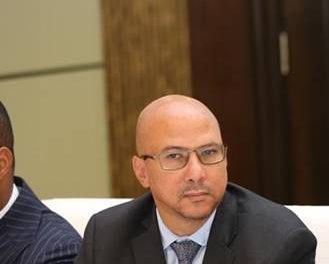
The massive damage of State Capture – when the distinction between party, state and despot fades

By Gerhard Erasmus, Associate at the Trade Law Centre, tralac.
Professor Erasmus is one of three constitutional lawyers who drafted the Namibian Constitution which was approved and ratified by the Constitutional Assembly between December 1998 and March 1990.
South Africa has seen an avalanche of very disturbing revelations about corruption and state capture. This has been going on for some time, and still there is no response from the [SA] government as to how this crisis will be addressed. The ANC leadership is occupied by a different agenda; keeping the lid on internal squabbles and electing a new party leader in December. This state of affairs persists despite growing evidence of governance failure, economic stagnation, and signs that international investors and rating agencies have lost confidence in the ability of the government to properly manage the economy.
President Zuma, whose presidency has been bogged by one scandal after the other (but who has survived them all) has repeatedly denied any wrongdoing. Despite almost overwhelming evidence to the contrary, he has not admitted that the Gupta family wields any undue influence over his government or in State-Owned Enterprises such as Eskom. He has only indicated that he is “not opposed” to a commission of inquiry being appointed. There have not been any criminal charges against those implicated. South Africans seem to live in a world of different realities.
The recent apology and withdrawal by KPMG (one of the country’s major auditing firms) of a report implicating Pravin Gordhan (the former Minister of Finance who was fired on the basis of a so-called intelligence report), the offer to repay the R23-million fee received, the resignation of its CEO, and the firing of senior KPMG staff members, make the state capture claim virtually irrefutable. KPMG now maintains that the Gupta family “responded misleadingly and inadequately” to auditor’s queries, and that it has identified, based on subsequent information that is now in the public domain, “a series of misrepresentations from the Guptas over the period that KPMG South Africa provided tax advice.”
The true reason for firing Mr Gordhan and his Deputy has to do with the removal of a steadfast opponent to state capture. As one commentator pointed out: With the management of Treasury out of the way, many of (Zuma’s) immediate aspirations can be fulfilled. Current threats to him from the Treasury can be cut off at the knees, including litigation against the Guptas over their access to banking facilities and a Treasury investigation into past procurement deals by parastatals like Eskom and Transnet….Treasury will no longer object when the Guptas want to form a joint venture with Denel to sell arms in Asia. And no longer will there be anyone to resist when State enterprises like SA Airways and Transnet want to appoint vastly overpaid consultants to do no identifiable job. Financially crippled institutions like the SABC and SA Airways will have far freer access to new cash. And the important prize of the nuclear procurement project becomes much closer to his grasp. Control over the Public Investment Corporation (PIC) can be added to this list of targets.
What is state capture? And what are the implications for South Africa of the failure to take urgent remedial action?
State capture is worse than corruption. In May, this year the State Capacity Research Project released its report Betrayal of the Promise: How South Africa is being stolen. It explains state capture as follows: Corruption normally refers to a condition where public officials pursue private ends using public means. While corruption is widespread at all levels and is undermining development, state capture is a far greater, systemic threat. It is akin to a silent coup and must, therefore, be understood as a political project that is given a cover of legitimacy by the vision of radical economic transformation.
State capture is not an irrational enterprise. It is an ongoing political project to remove the typical controls associated with the rule of law, transparency and accountability, and to do this permanently. The constitutional state will be weakened, perhaps mortally. It will be replaced by a power elite which will not give up its control over key state institutions and public resources. The difference between the state, the party and the government fades away. A crude example can be found north of the Limpopo.
This captured state cannot deliver good governance. And it is incapable of genuine economic reform and development. It does not produce sound and legitimate policies, proper oversight over individual ministries, optimal frameworks for regional policies, and realistic trade and integration strategies. As financial discipline is eroded, matters will become worse, rating agencies will downgrade public institutions further. Eventually loans and investment will dry up. Those in civil society who take to the streets and the courts will find it increasingly difficult to voice their opposition and to hold corrupt officials to account. Civil liberties will not be tolerated when viewed as threats to political incumbents.
The KPMG saga shows that many in the private sector buy into the allure of this alternative reality. Their moral compass is not strong enough to withstand the pickings on offer.
Will South Africa escape the full circle of state capture and ultimate demise of the constitutional order? How is this to be prevented? Will a new ANC leadership come to power and rescue the state and its people? Despite strong support in certain sections of the ANC for the original values of the liberation struggle, such new leadership may not be forthcoming, or not in the format urgently required. We simply do not know what will happen at the December ANC conference. Some predict that this conference may not even take place.
President Zuma’s term only expires in 2019. He and his supporters will not suddenly give up on their project nor their efforts to protect him against criminal prosecution. Too much is at stake; including access to public resources on all levels of government. And there are additional arrows in the quiver – spontaneous mass protest and even violence have been part of the local political scene before.
It is a real possibility that the ANC will prioritise party unity at its national conference and elect a compromise candidate. A national election must be fought in 2019. This can result in another manifestation of the present dilemma – the muddling-through state. This will not bring about the reforms now required. They will be beyond the reach of a party paralysed by the need to pacify opposing factions.
What is to be done? Everything is not lost. Civil society, opposition parties, trade unions and NGOs have a proud record when it comes to fighting abuse of power and the violation of the constitution. They must continue to do so, and with more urgency. The courts have been steadfast in upholding the constitution. The business community has an important role to play by pushing for reforms and supporting genuine efforts to address inequality and its dangers.
State capture will not be reversed in one sweeping reform. It has become too pervasive. The incremental restructuring of the state and its structures of governance and repair of the damage already done call for a dedicated, inclusive and well-informed effort. Vigilance is vital.












































